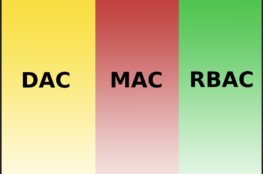Password security is crucial in protecting your online accounts and sensitive information from unauthorized access. A strong password is one that is difficult for an attacker to guess or crack, even with the use of automated tools. In 2023, as computing power and technology continue to advance, attackers may be able to crack weaker passwords more easily, which makes it essential to use strong and complex passwords.
One best practice for password security is to follow the guidelines set forth by the National Institute of Standards and Technology (NIST). NIST is a federal agency that provides cybersecurity standards and guidelines for organizations and individuals to follow. The NIST guidelines recommend using long and complex passwords that are at least 12 characters long, include a mix of uppercase and lowercase letters, numbers, and symbols. The guidelines also suggest using a passphrase, which is a longer sequence of words that are easy to remember but difficult for attackers to guess.
Another best practice is to avoid using commonly used passwords, such as “password” or “123456,” as they are easily guessable by attackers. It’s also important to use a unique password for each online account to prevent attackers from gaining access to all your accounts if one password is compromised. Password managers can be a useful tool in generating and storing complex passwords securely.
In addition to using strong passwords, implementing two-factor authentication can provide an added layer of security. Two-factor authentication requires a second form of identification, such as a fingerprint or a code sent to your phone, in addition to your password, to access an account. This makes it more difficult for attackers to gain access to your accounts even if they have your password.
In summary, strong and complex passwords are crucial in protecting your sensitive information from unauthorized access. By following the NIST guidelines and best practices for password security, you can ensure that your passwords are secure and difficult to guess or crack.
The table below shows how long it takes to crack a password in 2023.
| Password Length | Numbers Only | Lowercase Letters Only | Upper and lowercase Letters | Numbers +Upper and lowercase Letters | Numbers +Upper and lowercase Letters + Symbol |
|---|---|---|---|---|---|
| 5 | Instantly | Instantly | Instantly | Instantly | Instantly |
| 6 | Instantly | Instantly | Instantly | Instantly | Instantly |
| 7 | Instantly | Instantly | 1 second | 2 seconds | 4 seconds |
| 8 | Instantly | Instantly | 28 seconds | 2 minutes | 5 minutes |
| 9 | Instantly | 3 seconds | 24 minutes | 2 hours | 6 hours |
| 10 | Instantly | 1 minute | 21 hours | 5 days | 2 weeks |
| 11 | Instantly | 32 minutes | 1 month | 10 months | 3 years |
| 12 | 1 second | 14 hours | 6 years | 53 years | 226 years |
| 13 | 5 seconds | 2 weeks | 332 years | 3k years | 15k years |
| 14 | 52 seconds | 1 year | 17k years | 202k years | 1m years |
| 15 | 9 minutes | 27 years | 898k years | 12m years | 77m years |
| 16 | 1 hour | 713 years | 46m years | 779m years | 5b years |
| 17 | 14 hours | 18k years | 2b years | 48b years | 380b years |
| 18 | 6 days | 481k years | 126b years | 2t years | 26t years |


